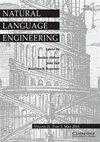Abstractive summarization with deep reinforcement learning using semantic similarity rewards
IF 1.9
3区 计算机科学
Q3 COMPUTER SCIENCE, ARTIFICIAL INTELLIGENCE
引用次数: 0
Abstract
Abstract Abstractive summarization is an approach to document summarization that is not limited to selecting sentences from the document but can generate new sentences as well. We address the two main challenges in abstractive summarization: how to evaluate the performance of a summarization model and what is a good training objective. We first introduce new evaluation measures based on the semantic similarity of the input and corresponding summary. The similarity scores are obtained by the fine-tuned BERTurk model using either the cross-encoder or a bi-encoder architecture. The fine-tuning is done on the Turkish Natural Language Inference and Semantic Textual Similarity benchmark datasets. We show that these measures have better correlations with human evaluations compared to Recall-Oriented Understudy for Gisting Evaluation (ROUGE) scores and BERTScore. We then introduce a deep reinforcement learning algorithm that uses the proposed semantic similarity measures as rewards, together with a mixed training objective, in order to generate more natural summaries in terms of human readability. We show that training with a mixed training objective function compared to only the maximum-likelihood objective improves similarity scores.基于语义相似度奖励的深度强化学习抽象摘要
摘要抽象摘要是一种文档摘要方法,它不仅限于从文档中选择句子,而且还可以生成新的句子。我们解决了抽象摘要中的两个主要挑战:如何评估摘要模型的性能以及什么是一个好的训练目标。我们首先引入了基于输入的语义相似度和相应的摘要的评价方法。相似性分数是由微调BERTurk模型使用交叉编码器或双编码器架构获得的。在土耳其语自然语言推理和语义文本相似度基准数据集上进行了微调。我们发现,与记忆导向的注册评估(ROUGE)分数和BERTScore分数相比,这些指标与人类评价有更好的相关性。然后,我们引入了一种深度强化学习算法,该算法使用所提出的语义相似性度量作为奖励,以及混合训练目标,以便在人类可读性方面生成更自然的摘要。我们表明,与只有最大似然目标相比,使用混合训练目标函数的训练提高了相似度得分。
本文章由计算机程序翻译,如有差异,请以英文原文为准。
求助全文
约1分钟内获得全文
求助全文
来源期刊

Natural Language Engineering
COMPUTER SCIENCE, ARTIFICIAL INTELLIGENCE-
CiteScore
5.90
自引率
12.00%
发文量
60
审稿时长
>12 weeks
期刊介绍:
Natural Language Engineering meets the needs of professionals and researchers working in all areas of computerised language processing, whether from the perspective of theoretical or descriptive linguistics, lexicology, computer science or engineering. Its aim is to bridge the gap between traditional computational linguistics research and the implementation of practical applications with potential real-world use. As well as publishing research articles on a broad range of topics - from text analysis, machine translation, information retrieval and speech analysis and generation to integrated systems and multi modal interfaces - it also publishes special issues on specific areas and technologies within these topics, an industry watch column and book reviews.
 求助内容:
求助内容: 应助结果提醒方式:
应助结果提醒方式:


